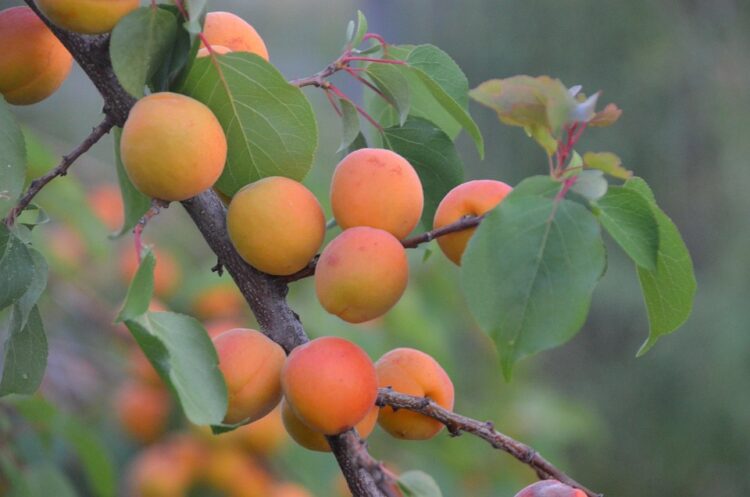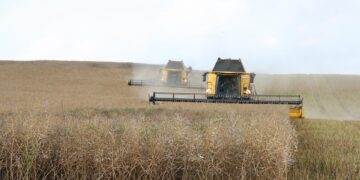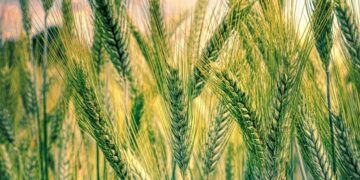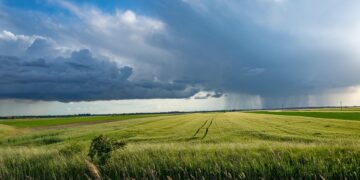The Importance of Sustainable Livestock Farming
As the global population continues to grow, the demand for animal products such as meat, milk, and eggs is on the rise. However, traditional methods of livestock farming have come under scrutiny for their negative impact on the environment, animal welfare, and human health. This has led to an increased interest in sustainable livestock farming practices that prioritize the well-being of animals, the environment, and the people who consume these products.
What is Sustainable Livestock Farming?
Sustainable livestock farming is a holistic approach to raising animals for food that takes into account the long-term health and well-being of the animals, the environment, and the people who consume their products. This includes practices such as rotational grazing, using locally-sourced feed, and minimizing the use of antibiotics and hormones.
The Benefits of Sustainable Livestock Farming
There are numerous benefits to adopting sustainable livestock farming practices. For one, it can help reduce the environmental impact of animal agriculture by minimizing pollution, conserving water and energy, and promoting biodiversity. Additionally, sustainable livestock farming can improve animal welfare by providing animals with access to pasture, fresh air, and space to move around.
From a human health perspective, sustainable livestock farming can also help reduce the use of antibiotics and hormones in animal production, which can contribute to the development of antibiotic-resistant bacteria and other health issues. By focusing on raising healthy animals in a natural environment, sustainable livestock farming can produce higher quality and more nutritious meat, milk, and eggs for consumers.
Challenges and Opportunities in Sustainable Livestock Farming
Challenges
While there are many benefits to sustainable livestock farming, there are also challenges that farmers face when transitioning to these practices. One of the biggest challenges is the upfront cost of implementing sustainable farming methods, which can be higher than traditional methods. Additionally, there may be a lack of infrastructure and support for sustainable livestock farming in some areas, making it difficult for farmers to access resources and markets.
Opportunities
Despite these challenges, there are also numerous opportunities for farmers who are willing to embrace sustainable livestock farming practices. For one, there is a growing demand for sustainably-raised animal products from consumers who are concerned about the environmental and ethical implications of traditional farming methods. This can create new markets and opportunities for farmers who are able to meet this demand.
Additionally, sustainable livestock farming can help farmers adapt to a changing climate by promoting practices that are more resilient to extreme weather events and other environmental challenges. By diversifying their operations and focusing on regenerative agriculture, farmers can build healthier soils, improve water retention, and sequester carbon in the soil.
Case Studies in Sustainable Livestock Farming
1. Polyface Farm
Polyface Farm, located in Virginia, is a well-known example of a successful sustainable livestock farm. The farm uses rotational grazing methods to raise grass-fed beef, pastured poultry, and free-range eggs. By moving animals to different paddocks regularly, the farm mimics natural grazing patterns and improves soil health.
Additionally, Polyface Farm focuses on building relationships with consumers through direct marketing and on-farm events. This allows the farm to sell its products at a premium and connect with consumers who value sustainable farming practices.
2. White Oak Pastures
White Oak Pastures, located in Georgia, is another example of a successful sustainable livestock farm. The farm raises grass-fed beef, pastured poultry, and heritage pork using regenerative agriculture practices. This includes rotating animals through different pastures, planting cover crops, and using compost to improve soil fertility.
White Oak Pastures also operates a USDA-inspected on-farm processing facility, which allows the farm to sell its products directly to consumers and restaurants. This vertical integration helps the farm capture more value from its products and maintain control over its supply chain.
Conclusion
Overall, sustainable livestock farming offers a promising solution to the environmental, ethical, and health challenges of traditional animal agriculture. By adopting practices that prioritize the well-being of animals, the environment, and consumers, farmers can create a more sustainable and resilient food system for future generations.
While there are challenges to overcome, there are also numerous opportunities for farmers who are willing to embrace sustainable livestock farming practices. By focusing on regenerative agriculture, building relationships with consumers, and investing in infrastructure, farmers can build successful and profitable businesses while also contributing to a healthier planet.
As consumers, we can also support sustainable livestock farming by seeking out products from farms that prioritize sustainability and animal welfare. By making informed choices about the food we eat, we can help drive demand for more sustainable farming practices and create a brighter future for farmers, animals, and the environment.











